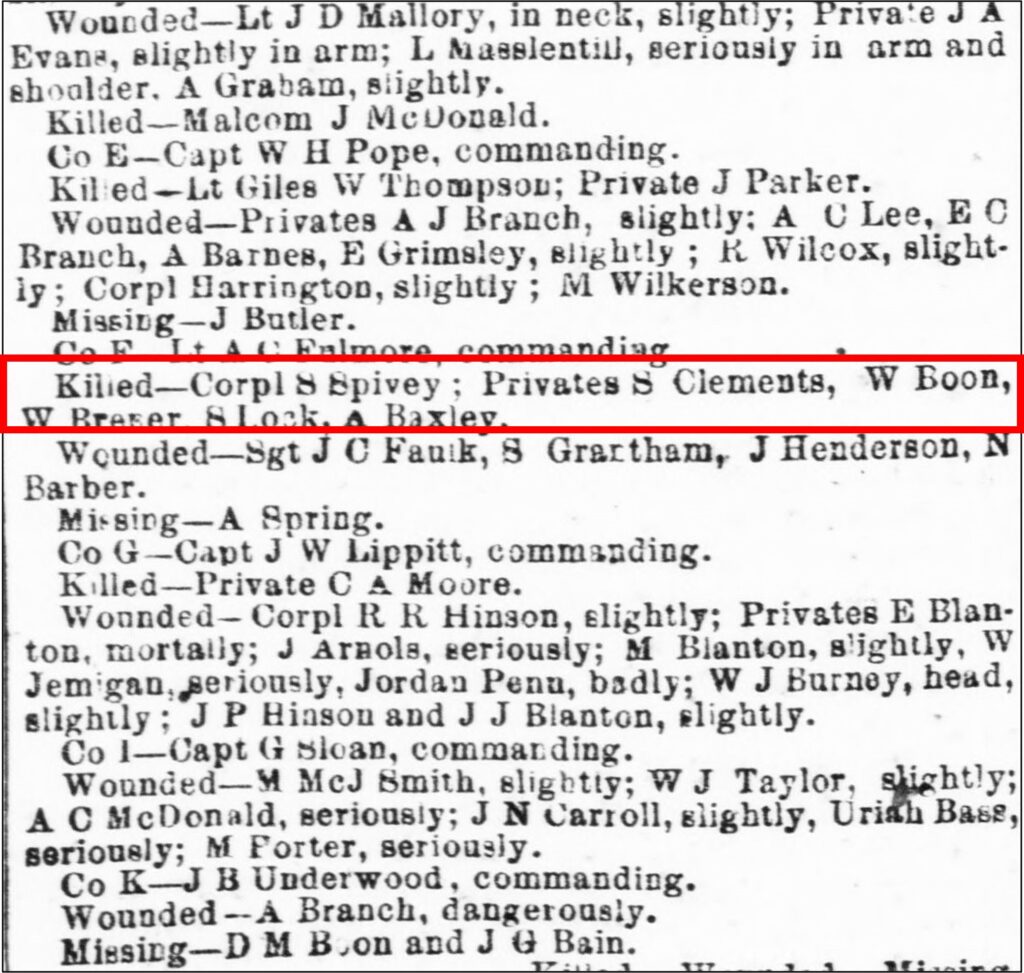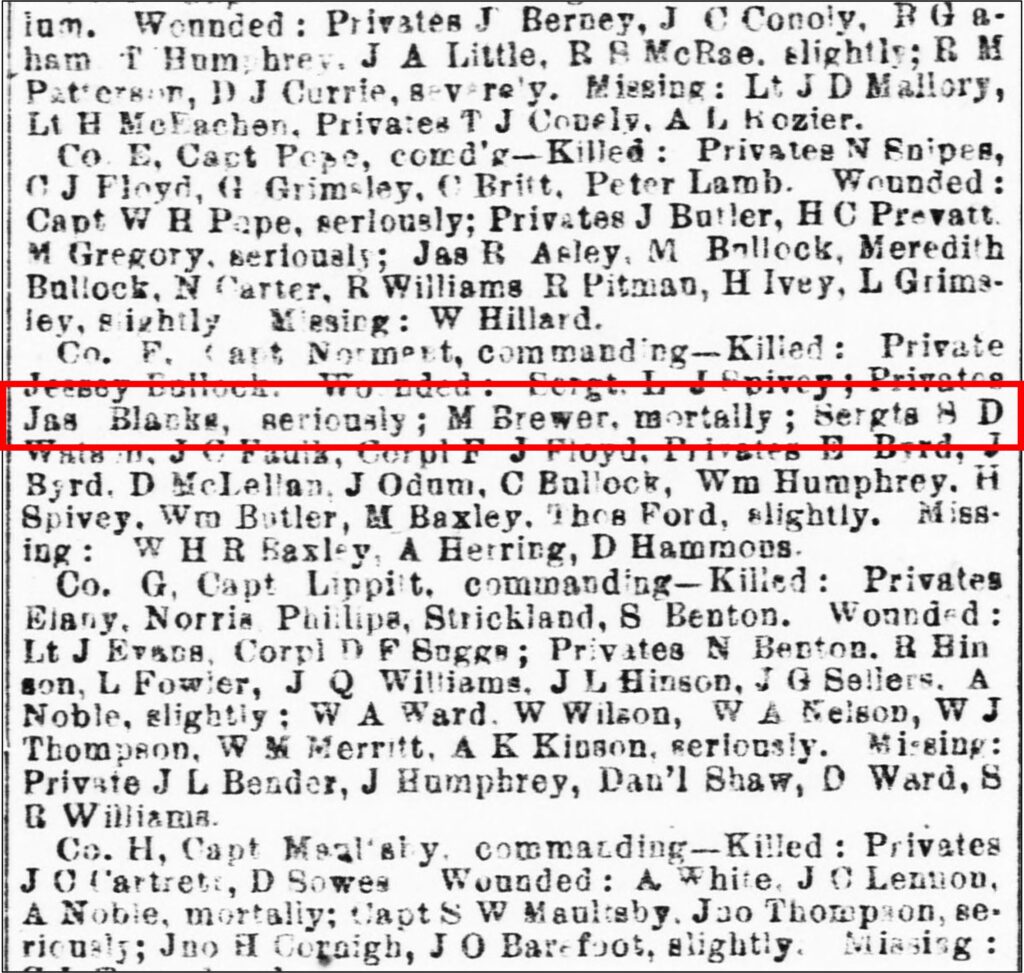After major engagements, North Carolina Regiments submitted casualty lists to their hometown newspapers. Private William Brewer’s name appeared twice in casualty lists, once as killed and again as mortally wounded. Despite being killed twice, Brewer maaged to survive the war.
William Brewer enlisted as a private in Company F, 51st Regiment NC Troops on March 10, 1862. The 25-year-old laborer went into camp with his company at Wilmington. Not long after Brewer arrived in Wilmington, he began suffering from epistaxis (nose bleeds). He spent a week in April as a patient at Confederate Hospital #4. His condition persisted, and he returned to Hospital #4 in May.
On December 18,1862, Private Brewer was once again admitted to Hospital #4, this time with neuralgia (headache). After three weeks in the hospital, he was furloughed for 25 days.
Brewer was on hand during the assault on Battery Wagner in July 1863. The private appeared on the casualty list published in the Wilmington Journal on July 23, 1863. He was mistakenly listed as killed in action.

Apparently, William Brewer did not know he had been killed. He continued to serve with the Fifty-First and took time off in March 1864 to get married. He was married in Marion District, South Carolina in a triple ceremony that included two of his comrades from Company F.
During the Battle of Drewry’s Bluff in May 1864, Brewer was wounded. The regiment’s casualty list, printed in the May 26, 1864 Wilmington Journal, listed the unfortunate soldier as “mortally” wounded.

Private William Brewer survived his second death and returned to duty sometime in November/December 1864.
Brewer filed pension applications with Robeson County in 1886, 1902 and 1905. He was struck by a Minie ball that entered the right side of his throat near the collar bone. The ball then passed through his body and exited through the right shoulder blade. The wound paralyzed his right arm, which shriveled as Brewer aged. By the time of his last pension application, William Brewer was “very destitute and in a pitiable condition.”
Copyright © 2021 – 2026 by Kirk Ward. All rights reserved.